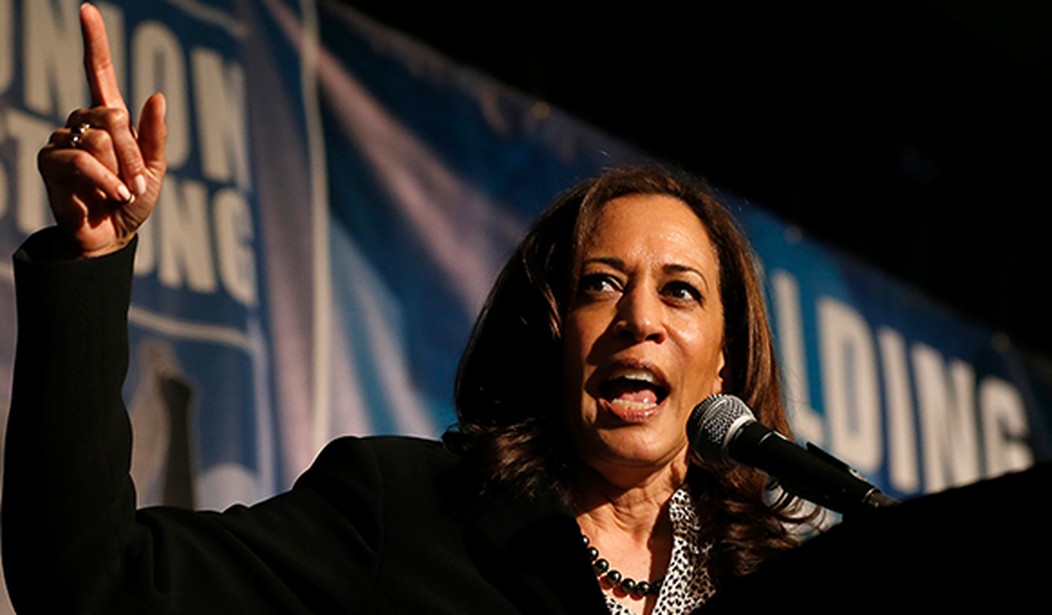Politicians making campaign promises they do not keep is nothing new, but today’s declared candidates for the Democratic presidential nomination are playing black Americans for suckers. They’re making a promise they know they can’t and have no intention of keeping – the promise of getting the United States of America to pay its African-American citizens reparations as an atonement for slavery.
Make no mistake, this is about votes.
A recent Hot Air column describes how Democrats heavily opposed the idea of reparations just five years ago but now are evenly split on the issue. Among Democratic presidential candidates, the idea of the USA paying reparations is now a regular talking point.
In declaring her support for reparations, Sen. Elizabeth Warren recently said, “We must confront the dark history of slavery and government-sanctioned discrimination in this country that has had many consequences including undermining the ability of Black families to build wealth in America for generations.”
Sen. Kamala Harris is likewise on record having been asked in an interview with “The Grio” her thoughts on the topic. Harris reiterated her support on New York’s “The Breakfast Club.” Having been asked by the show’s host, “So, you are for some type of reparations?” Harris bluntly replied, “Yes I am, yes I am.”
Sen. Cory Booker has also made clear he is in favor of reparations, as he has already sponsored a bill to such effect. Speaking at a conference earlier this month, Beto O’Rourke was asked specifically about reparations, and replied, “…absolutely I would sign that into law."
During his CNN town hall meeting, presidential hopeful Julian Castro gave a rambling four-minute answer to the question, which included, “We’ve inherited some moral debts. And one of those debts that we’ve never paid is the debt for that original sin of slavery.”
Recommended
Why all the reparations talk all of a sudden? Trump. Trump’s economic policies are improving the lives of black Americans, just like he promised. Black unemployment continues at historic lows, manufacturing jobs are back, paychecks are up, meaningful prison reform has happened and his urban renewal plan, which includes significant incentives for inner-city investment, is making a difference.
Hope in the black community is real, as Democrats see inroads being paved into their 90%+ voter bloc, they’ve realized “We have to do something!” That something is the promise of free money via reparations. Yet for all the talk, one thing is missing—a plan. A perusal of the mentioned candidates’ websites results is not so much as a mention of reparations, let alone an actual plan for how they propose doing it. Reparations are a promise they cannot and will not keep for two primary reasons.
Regardless of which party is in control, such legislation has no hope of passage, and they know it. Democrats had the White House plus super-majorities in both Houses in 2010, they made criminals of blacks who couldn’t afford health insurance but floated no reparations bill. Why not? Whites are the majority in this country. No legislators have the stomach to tell their Caucasian constituents (who could end their time in office), “It’s time for y’all to fork up.” Any such bill is dead on arrival.
Second is the high degree of devil in these details. The complexity of constructing any reparations system makes it virtually impossible. The simple question of “Who pays whom how much?” is unanswerable. For instance, there are African Americans in the country today whose ancestors immigrated here of their own free will post-1863, so they came here after emancipation, after slavery was abolished. Are those blacks entitled to reparation pay? Likewise, there are Caucasians whose kin immigrated here after slavery ended and therefore never owned slaves. Do those whose kin hopped on a boat and landed at Ellis Island in 1913 have to cough up reparation pay?
Though the number killed in the Civil War is not known precisely, most sources agree the total was between 640,000 and 700,000. More than 250,000 Americans died while fighting for the Union Army—white men who sacrificed their lives fighting thousands of miles from home to help free slaves they had never seen. In addition to the loss of a distant grandfather on the battlefield, do we now tell their descendants they owe a financial debt too?
Also, what, if any, statute of limitations applies to any reparation payments? If we pay living descendants of slaves today, what about their children? Their children’s children, and so on. If a descendant of slavery is worthy of reparation payment in 2019, is a similar such person not equally worthy in 2039? 2059? When, where, and how does it end?
These plus dozens of other questions add up to an impossible, unworkable situation and one that will never get signed into law even if a solution were ever found. Democrats running for president are smart people; they know all of this, which is why making the promise is so easy. The promise has (they hope) appeal to a segment of voters they fear could be slipping away. Reparations promises are a politician’s dream come true because it’s one they needn’t worry about fulfilling.

























Join the conversation as a VIP Member